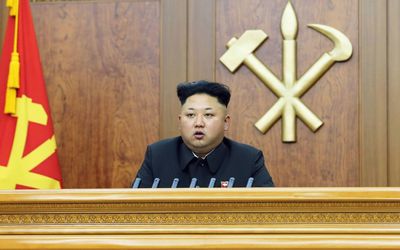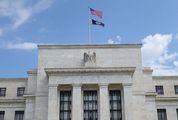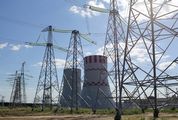China puts squeeze on North Korea
by James Pearson and Ju-Min Park,
2016-03-04 06:04:15.0
SEOUL — From inspecting visiting North Korean ships to paring back coal imports, the burden of enforcing new United Nations (UN) sanctions on Pyongyang falls mainly on China, which wants to punish its ally for nuclear violations, but without squeezing it to the point of crisis.
After nearly two months of negotiations between Washington and Beijing, China agreed on Thursday to a US proposal that would tighten existing restrictions on North Korea considerably after its January 6 nuclear test and recent rocket launch.
The draft, seen by Reuters, requires UN member states to conduct mandatory inspections of all cargo passing through their territory to or from North Korea and bans all gold exports, as well as exports of coal if proceeds of the goods fund the North’s weapons programmes.
For China, which accounts for 90% of North Korean trade, that means stepping up inspections at ports such as Dalian and in the border city of Dandong, through which much of the trade between the countries passes.
China, which defended North Korea in the 1950-53 Korean War, is Pyongyang’s closest ally and largest trading partner. While it has become increasingly critical of the North’s nuclear programmes, it prizes stability on the Korean peninsula.
"It might look like China is co-operating, but that will just be on the surface," said Kim Dong-yub at Kyungnam University’s Institute of Far Eastern Studies in Seoul.
The two countries share a fairly porous 1,400km border, where illicit trade has grown in recent years.
"Until these trade routes are shut off, the structure there makes it too difficult for sanctions to effectively kick in," said Mr Kim.
Chinese foreign ministry spokesman Hong Lei said China believes the new sanctions should be aimed at reining in North Korea’s nuclear and missile programme, and should not affect ordinary people, and that what is most needed is to get negotiations back on track.
Asked about criticism that China had not fully enforced previous sanctions, Mr Hong disagreed. "China strictly abides by its relevant decisions," he said.
The draft resolution targets North Korea’s reliance on mineral exports by banning the sale or transfer of North Korean coal, iron and iron ore if profits are deemed to be spent on its nuclear or missile programmes. Minerals for sale that are "exclusively for livelihood purposes" are exempted, which analysts said would be pretty night to impossible to monitor.
"You can’t determine which part of the mineral trade is related to people’s livelihoods or not," said Choi Kyung-soo, head of the North Korea Resources Institute in Seoul.
Reuters

North Korean leader Kim Jong Un delivers a New Year's address in this Thursday photo released by North Korea's Korean Central News Agency (KCNA) in Pyongyang. Picture: REUTERS / KCNA
SEOUL — From inspecting visiting North Korean ships to paring back coal imports, the burden of enforcing new United Nations (UN) sanctions on Pyongyang falls mainly on China, which wants to punish its ally for nuclear violations, but without squeezing it to the point of crisis.
After nearly two months of negotiations between Washington and Beijing, China agreed on Thursday to a US proposal that would tighten existing restrictions on North Korea considerably after its January 6 nuclear test and recent rocket launch.
The draft, seen by Reuters, requires UN member states to conduct mandatory inspections of all cargo passing through their territory to or from North Korea and bans all gold exports, as well as exports of coal if proceeds of the goods fund the North’s weapons programmes.
For China, which accounts for 90% of North Korean trade, that means stepping up inspections at ports such as Dalian and in the border city of Dandong, through which much of the trade between the countries passes.
China, which defended North Korea in the 1950-53 Korean War, is Pyongyang’s closest ally and largest trading partner. While it has become increasingly critical of the North’s nuclear programmes, it prizes stability on the Korean peninsula.
"It might look like China is co-operating, but that will just be on the surface," said Kim Dong-yub at Kyungnam University’s Institute of Far Eastern Studies in Seoul.
The two countries share a fairly porous 1,400km border, where illicit trade has grown in recent years.
"Until these trade routes are shut off, the structure there makes it too difficult for sanctions to effectively kick in," said Mr Kim.
Chinese foreign ministry spokesman Hong Lei said China believes the new sanctions should be aimed at reining in North Korea’s nuclear and missile programme, and should not affect ordinary people, and that what is most needed is to get negotiations back on track.
Asked about criticism that China had not fully enforced previous sanctions, Mr Hong disagreed. "China strictly abides by its relevant decisions," he said.
The draft resolution targets North Korea’s reliance on mineral exports by banning the sale or transfer of North Korean coal, iron and iron ore if profits are deemed to be spent on its nuclear or missile programmes. Minerals for sale that are "exclusively for livelihood purposes" are exempted, which analysts said would be pretty night to impossible to monitor.
"You can’t determine which part of the mineral trade is related to people’s livelihoods or not," said Choi Kyung-soo, head of the North Korea Resources Institute in Seoul.
Reuters




















Change: 0.83%
Change: 0.93%
Change: 0.95%
Change: 0.73%
Change: 1.91%
Data supplied by Profile Data
Change: 0.58%
Change: 0.61%
Change: 0.83%
Change: 0.00%
Change: 0.70%
Data supplied by Profile Data
Change: -1.62%
Change: -0.85%
Change: -0.61%
Change: -1.00%
Change: -0.47%
Data supplied by Profile Data
Change: 2.33%
Change: 1.99%
Change: 2.36%
Change: 2.65%
Change: 3.44%
Data supplied by Profile Data